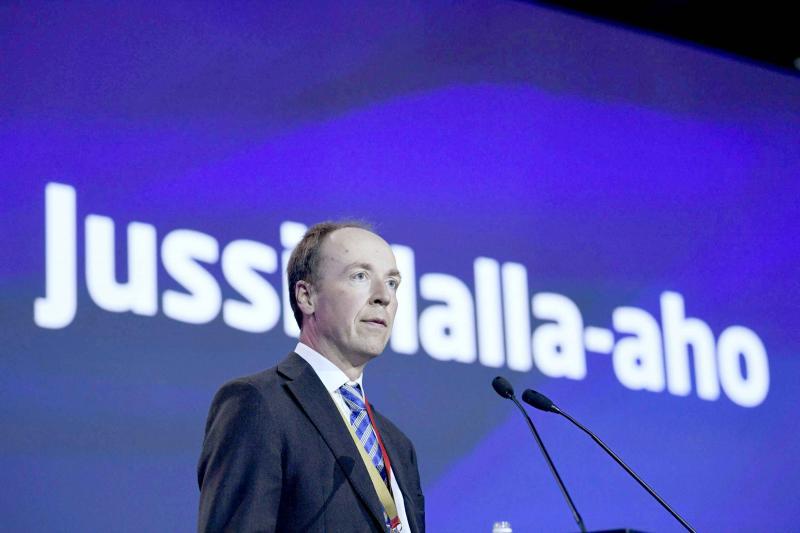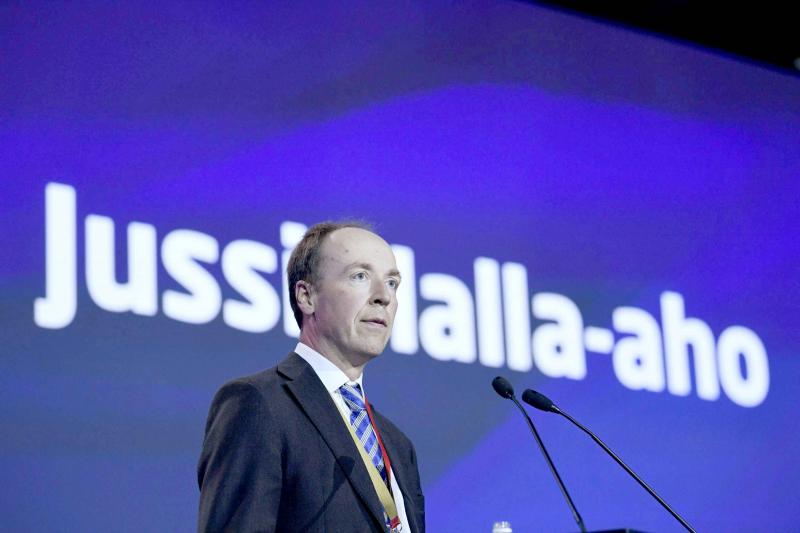Like Sweden, Finland has its Muslim-bashing populists
The rise of the far-right Sweden Democrats, who are hostile to Muslims and migrants, is mirrored in Finland, Sweden’s neighbour to the east. Finland, too, has an authentically populist political party with a nasty message for immigrants of non-European, non-Christian heritage.
Like Swedes, Finns have elections on their minds. Finnish voters will go to the polls next year. Despite its relatively homogenous, small population — just 5.5 million; 17 inhabitants per sq. kilometre — and comparatively placid politics, Finland’s populists maintain an unhealthy focus on Muslims. This might seem surprising considering Finland has a rather small number of Muslims, perhaps 70,000, the majority of whom are adolescents.
Not so. The Finns Party, which is part of the governing coalition, has an ugly anti-Muslim, anti-migrant agenda, one that is likely to become more strident as the election draws closer. On September 11, a Finns Party politician was convicted of public incitement to violence against the Finnish Red Cross, which runs reception centres for asylum seekers.
Finns Party Leader Jussi Halla-aho was fined by Finland’s Supreme Court six years ago for comments linking Islam to paedophilia and Somalis to theft. One of the party’s deputy leaders, Laura Huhtasaari, who ran for Finnish president this year, channelled US President Donald Trump with a “Finland First” message and rants about “Muslim backwardness.” Earlier this year, Huhtasaari was fined for a Facebook post calling for a Muslim-free Finland, which a court said amounted to discrimination against an ethnic group.
The Finnish populists are unapologetic about wanting a Finland with no immigration from outside Europe, except for individuals who bring clear economic benefits. In any case, Finland’s Muslim community, which includes Arabs, Kurds, Turks, Iranians, Somalis, Bosnians and Kosovo Albanians, lives in a markedly Islamophobic culture. The International Social Survey Programme of 2008 said that approximately one-half of the Finnish population had a negative attitude towards Islam and Muslims, more than any other country in the 42-country study.
That explains some of the context for the Finns Party’s rhetoric, which chimes with that of the Sweden Democrats next door. The Sweden Democrats are desirous of locking migrants in to overt displays of “Swedishness,” whatever that might mean. Sweden Democrats’ foreign affairs spokesman Markus Wiechel admitted his party wanted migrants to “become Swedish… to assimilate.”
This hard-line approach can only provoke resistance in Sweden, Finland and elsewhere in Europe, when a more measured give-and-take is required.
Consider the findings of a recently submitted doctoral dissertation on the identities of young Muslims in Finland. The scholar, Teemu Pauha of Helsinki University, investigated young Finnish Muslims’ sense of belonging to the country in which they were born and made a surprising discovery.
“Within the scope of a single interview session, the same study subject could talk about both ‘those Finns’ and ‘us Finns,’ depending on the connotations linked with Finnishness in each case. Many considered themselves Finns when abroad and foreigners in Finland,” Pauha said.
Pauha’s research opens with an interesting anecdote that illustrates the extent of disconnection between Finnish Muslims and their country. In December 2017, the 100th anniversary of Finnish independence, a Muslim youth organisation, Nuorten Muslimien Foorumi (NMF), organised a gala to mark the occasion. An NMF activist went on television to explain the organisation’s goal was to “construct the kind of Muslims who feel that they are also Finnish.” It suggested, Pauha writes, that “Finnish identity is not automatic” but something to be consciously built by Muslims.
Just how hard that will be is clear from Pauha’s analysis of letters written by 11-16-year-old Muslims to an imaginary friend about life in Finland. “Finnishness is associated with things that are haram, especially smoking and drinking, and, as a result, becoming more like the Finns is portrayed as a cause of losing one’s Muslimness,” says Pauha. Clearly, the idea of Finnishness itself must change if it is to fit all of the country’s population in the 21st century.
That said, young Finnish Muslims’ uncertain embrace of Finland has profound implications for them, their country and Europe more generally. By 2050, the Pew Research Centre estimated, migration could push Finland’s Muslim population to 3.4%, a big increase from 0.8% in 2010.
Even if Finland walls itself off to non-Europeans and Muslims, Pauha says, the Muslim population will grow, “but more modestly, to approximately 1.4%.”
Whatever happens, Finns and Muslims must accommodate each other.
Rashmee Roshan Lall is a regular columnist for The Arab Weekly. She blogs at www.rashmee.com and is on Twitter @rashmeerl
This article was originally published in The Arab Weekly.







